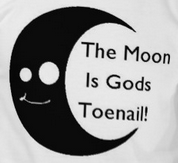I actually learned a lot from the Nye v. Ham debate. I need to do more of that, watch some TED talks. I play too much Risk. =)
Ham defined "kinds" as families taxonomically, which is interesting. Previously, creationists argued that species don't evolve into new species, but Ham admits this possibility. So new species and genera can evolve, according to Ham. I still don't see how lions, tigers, panthers, leopards, and cheetahs can evolve so fast in a 4,000 year time span from one common ancestor. This source puts the domestication of dogs at 8,000 BC:
http://books.google.com.hk/books?id=ajP ... &q&f=falseThere's just not enough time for everything to fit into a narrow window of 6,000 years. UC, could it be that you're mistaken about how long ago the Bible says the Earth was created?
This guy brings up the problem of incomplete genealogies, arguing that the Hebrew word for "son" can also be translated as "grandson," "great-grandson," and "descendant," and likewise, "father" can also be translated as "grandfather," "great-grandfather," and "ancestor."
[spoiler=Strong definition of son]Brown-Driver-Briggs Hebrew Dictionary
bên בּן (Strong's #H1121)
From H1129; a son (as a builder of the family name), in the widest sense (of literal and figurative relationship, including grandson, subject, nation, quality or condition, etc., (like H1, H251, etc.): - + afflicted, age, [Ahoh-] [Ammon-] [Hachmon-] [Lev-]ite, [anoint-]ed one, appointed to, (+) arrow, [Assyr-] [Babylon-] [Egypt-] [Grec-]ian, one born, bough, branch, breed, + (young) bullock, + (young) calf, X came up in, child, colt, X common, X corn, daughter, X of first, + firstborn, foal, + very fruitful, + postage, X in, + kid, + lamb, (+) man, meet, + mighty, + nephew, old, (+) people, + rebel, + robber, X servant born, X soldier, son, + spark, + steward, + stranger, X surely, them of, + tumultuous one, + valiant[-est], whelp, worthy, young (one), youth.[/spoiler]
[spoiler=Strong definition of father]Brown-Driver-Briggs Hebrew Dictionary
'âb אב (Strong's #H1)
father of an individual
of God as father of his people
head or founder of a household, group, family, or clan
ancestor
grandfather, forefathers - of person
of people
originator or patron of a class, profession, or art
of producer, generator (figuratively)
of benevolence and protection (figuratively)
term of respect and honour
ruler or chief (specifically)
Part of Speech: noun masculine
A Related Word by BDB/Strong’s Number: a root
Same Word by TWOT Number: 4a[/spoiler]
Similarly, the words for "day" and "night" have more meanings.
[spoiler=Strong definition of day]Strong's Hebrew Dictionary
yôm יום (Strong's #H3117)
From an unused root meaning to be hot; a day (as the warm hours), whether literally (from sunrise to sunset, or from one sunset to the next), or figuratively (a space of time defined by an associated term), (often used adverbially): - age, + always, + chronicles, continually (-ance), daily, ([birth-], each, to) day, (now a, two) days (agone), + elder, X end, + evening, + (for) ever (-lasting, -more), X full, life, as (so) long as (. . . live), (even) now, + old, + outlived, + perpetually, presently, + remaineth, X required, season, X since, space, then, (process of) time, + as at other times, + in trouble, weather, (as) when, (a, the, within a) while (that), X whole (+ age), (full) year (-ly), + younger.[/spoiler]
The words could refer to a literal day and night, but the majority of scholars view these words as metaphorical.
There are also a number of verses that refer to "a thousand generations," which I think you'll agree with me is probably metaphorical, but if we take that literally, and a generation is 20 years, that's at least 20,000 years for
Homo sapiens sapiens. The site suggests that a Biblical generation is 40 years, so that doubles the estimate to at least 40,000 years.
- Remember His covenant forever, The word which He commanded to a thousand generations, (1 Chronicles 16:15)
- He has remembered His covenant forever, The word which He commanded to a thousand generations, (Psalm 105:8)
- but showing love to a thousand generations of those who love me and keep my commandments. (Exodus 20:6)
- but showing love to a thousand generations of those who love me and keep my commandments. (Deuteronomy 5:10)
- Know therefore that the LORD your God is God; he is the faithful God, keeping his covenant of love to a thousand generations of those who love him and keep his commands. (Deuteronomy 7:9)
Admittedly, the first two are in the genre of poetry, which Ken Ham rightly points out that it's important to consider the genre something is written in when assessing how literal we should take it. The third and fourth are from the 10 Commandments, laws which admittedly can have poetical licenses, but God is directly speaking there. However, yes, perhaps he could be talking about the future. The last verse seems to be quoting the commandments.
Dating methods from the website:

The site includes sources for all of those dating methods. I'm going to peruse them when I have more time, but they look interesting to me.









